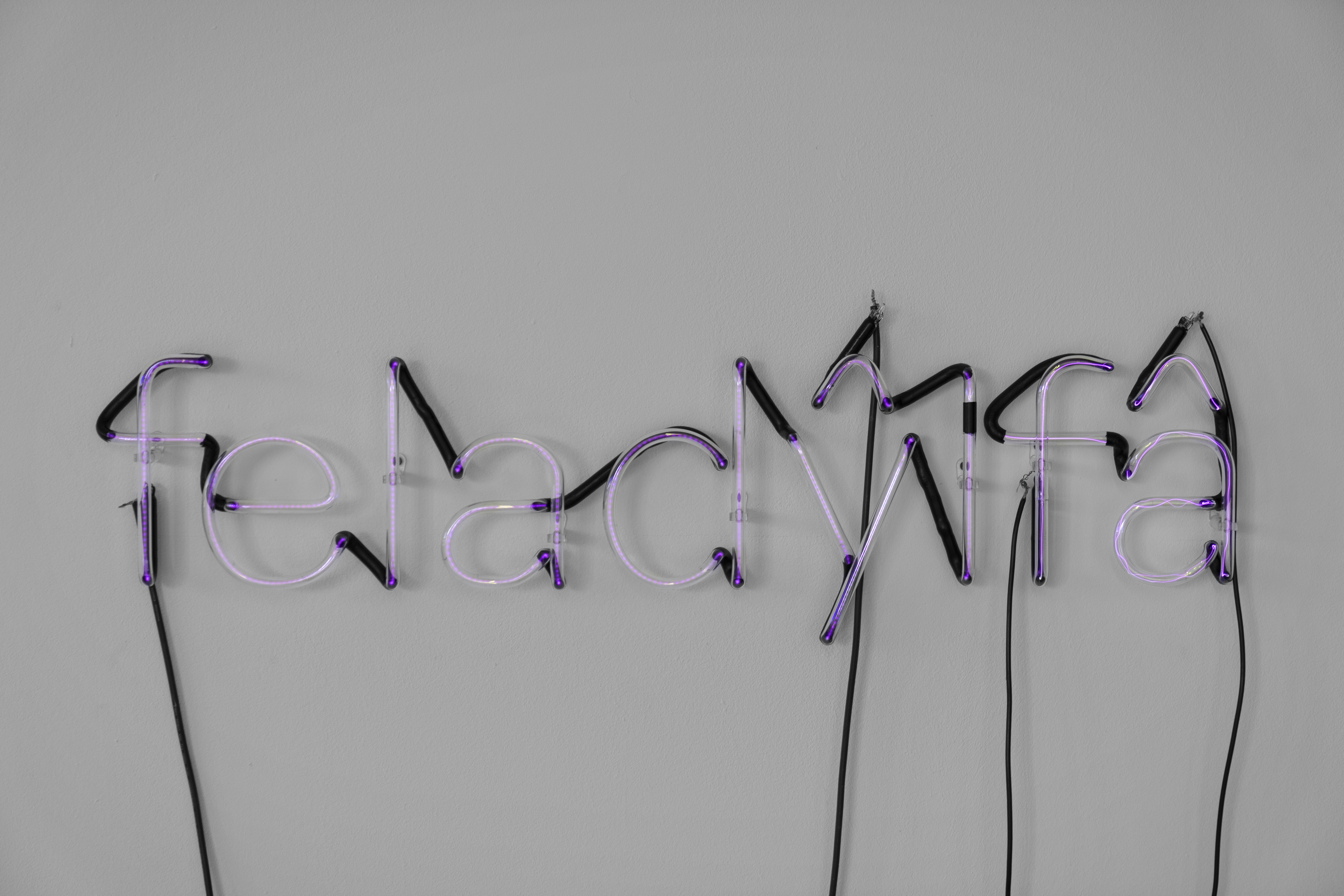feladŷifâ / feladŷi
dust? / dust
2022



Commissioned by GAK Bremen for Den leeren Strand überqueren, um den Ozea zu sehen. Clear glass, argon and neon gas, blackout paint. power supplies.
[3 images and one video of clear glass in the shape of the word “feladŷifâ” in a sans serif font on a white wall with blackout painted glass separating the letters and black power cords falling down the wall. The first image shows the word on display with empty glass. The second image shows the first letters lit up with soft purple light to read “feladŷi” and the third images shows the whole word “feladŷifâ” lit up. The video shows how the light flashes and the last two letters “fâ” flicker on and off with a wiggling purple light that contrasts with the stillness of the light illuminating the other letters. A manipulated slow voice reads the transcription below aloud as the letters flash on and off.]
feladŷifâ / feladŷi
dust? / dust
dust is the universal substance. fine particles of solid matter: skin cells, soil, pollen, textile fibres, paper fibres, meteorite particles once burning at 1726 degrees centigrade. fugitive dust seeks respite from the wind, battered by aeolian processes and human/animal interference into mounds, thin layers, soft grey piles in corners of rooms. in ẍây ithřan, feladŷifâ / feladŷi is a call and response oral tradition used to remind the speaker of the finite nature of all things: “dust?” one asks, “dust.” another confirms.
feladŷifâ / feladŷi
staub? / staub
staub ist die universelle substanz. kleine partikel fester materie: hautzellen, erde, pollen, textilfasern, papierfasern, meteoritenteilchen, die einst bei 1726 grad celsius verbrannten. flüchtiger staub sucht eine auszeit vor dem wind, zerschlagen von äolischen prozessen und menschlicher / tierischer einmischung, zu hügeln, dünnen schichten, weichen, grauen häufchen in raumecken. Auf ẍây ithřan ist feladŷifâ / feladŷi eine mündliche tradition bestehend aus frage und antwort, die die sprechenden an die endlichkeit aller dinge erinnert: „staub?“ fragt eine, „staub.“ bekräftigt eine andere